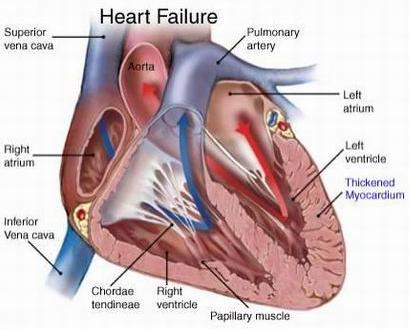|
|
INDICATIONS
Carvedilol is a non-selective beta blocker/alpha-1
blocker indicated in the treatment of mild to moderate congestive
heart failure (CHF).
Heart Failure
Cardivas Tablet is indicated for the treatment of mild-to-severe
chronic heart failure of ischemic or cardiomyopathic origin,
usually in addition to diuretics, ACE inhibitors, and digitalis,
to increase survival and, also, to reduce the risk of
hospitalization.
Left Ventricular Dysfunction Following Myocardial Infarction
Cardivas Tablet is indicated to reduce cardiovascular mortality in
clinically stable patients who have survived the acute phase of a
myocardial infarction and have a left ventricular ejection
fraction of ≤ 40% (with or without symptomatic heart failure).

Hypertension
Cardivas Tablet is indicated for the management of essential
hypertension
Dosage
Carvedilol comes as a tablet and an extended-release to take by
mouth. The tablet is usually taken twice a day with food. The
extended-release capsule is usually taken once a day in the
morning with food. Try to take carvedilol at around the same
time(s) every day.
Do not chew or crush the capsules, and do not divide the beads
inside a capsule into more than one dose. If you are unable to
swallow the capsules, you may carefully open a capsule and
sprinkle all of the beads it contains over a spoonful of cool or
room temperature applesauce. Swallow the entire mixture
immediately without chewing.
Carvedilol may help to control your condition but will not cure
it. Continue taking carvedilol even if you feel well. Do not stop
taking carvedilol without talking to your doctor. If you suddenly
stop taking carvedilol, you may experience serious heart problems
such as severe chest pain, a heart attack, or an irregular
heartbeat. Your doctor will probably want to decrease your dose
gradually over 1 to 2 weeks.
SIDE EFFECTS
Dizziness, lightheadedness, drowsiness, diarrhea, or tiredness may
occur. If any of these effects persist or worsen, tell your doctor
or pharmacist promptly.
To lower your risk of dizziness and lightheadedness, get up slowly
when rising from a sitting or lying position. The risk of
dizziness is highest within 1 hour after you take your dose.
Dizziness is most common when you first start using this drug or
any time your doctor increases your dose.
This drug may reduce blood flow to your hands and feet, causing
them to feel cold. Smoking may worsen this effect. Dress warmly
and avoid tobacco use.
PRECAUTIONS
This medication should not be used if you have certain medical
conditions. Before using this medicine, consult your doctor or
pharmacist if you have: asthma, certain types of heart rhythm
problems (sinus bradycardia, sick sinus syndrome, second- or
third-degree atrioventricular block), severe heart failure. This
drug may make you dizzy or drowsy or cause you to faint. This is
most likely to occur within 1 hour after taking your dose or any
time your doctor increases your dose. Use caution while driving,
using machinery, or taking part in any other activity that
requires alertness. Limit alcoholic beverages.
|
|






